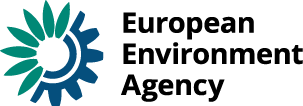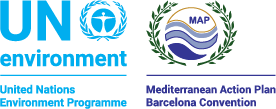Ministry of Environmental Protection of Israel reflects on new Waste Prevention Strategy for Israel
As part of Israel SEIS national work plan and with the support of the ENI SEIS II South Support Mechanism, Israel Ministry of Environmental Protection organised a national workshop on waste prevention 11-12 December 2018, at Ministry of Environmental Protection, Jerusalem, Israel.
The workshop targeted Members of staff of the Ministry of Environmental Protection of Israel involved in developing the new Waste Prevention Strategy for Israel, as well as experts from Israeli Bureau of Statistics. The workshop was facilitated by waste expert from and international expert from Environment Agency Austria.
The objective of the national workshop was to support the Ministry in developing the new Waste Prevention Strategy (WPS), with focus on the commercial sector.
The national workshop has been very successful and allowed to draw some key conclusions and propose a set of recommendations.
The participants recognised the key importance to involve stakeholders throughout the whole process of developing the Waste Prevention Programmes (WPP), from defining the priority areas, defining targets and developing measures for target achievement, defining indicators for monitoring and assessing the effects of the WPP.
The following steps were identified :
1. At the beginning, the priority areas of the WPP must be defined. The priority areas should on the one hand take into account waste streams where waste prevention would be very important (e.g. because of littering problems, or because of lack of treatment capacity, or because of global targets like prevention of food waste). On the other hand, there should be a realistic chance of successful implementation of waste prevention measures (e.g. because there are best-practise examples in other countries).
There are two options to involve the stakeholders at this stage:
- Either to conduct a wide stakeholder consultation with the aim to identify the topics of highest concern, which will then be subsequently developed in the WPP. The advantage is an extensive coverage of the topic but it is a challenge to prioritize the topics of concern adequately without disappointing relevant stakeholder groups.
- Or, based on the expert knowledge of the Ministry, define a small number of priority areas in advance, and then invite key stakeholder groups to participate in the process of setting realistic targets and developing measures.
2. In a next step, targets and measures for waste prevention must be developed. It is of key importance to define who will be responsible for implementing the measures. Targets must be realistic in terms of quantity and time (when to achieve what). Experience from other countries show that it is a good approach to tackle target waste streams from different angles, with a variety of measures and addressing different stakeholders (whole value chain if possible).
3. It is of key importance, when defining the measures, to define in parallel the indicators which will be used for monitoring, in order to be able:
- to assess the effectiveness of the implemented measures;
- to reconfirm successful measures when renewing the WPP;
- to phase out those measures which proved to be less or not effective ;
- to propose new measures.
The following areas for the WPP have been recommend to be considered as priority:
- Food Waste: Food waste is a major issue in Israel, and also at global level (UN SDGs). Hotels and restaurants are important stakeholder who should have a key interest in reducing food waste, and who could also implement measures. There are best-practise examples from other EU MS, how food waste can be avoided in hotels and restaurants.
- Plastic Waste: Plastic waste is a major issue in Israel. Measures for the reduction of plastic bags have already been set. The reduction of the use of plastic dishes and plastic cutlery would be a promising goal. Addressees of measures could be retailers selling these goods, (fast) food restaurants and retailers selling food in plastic containers and the consumers.


